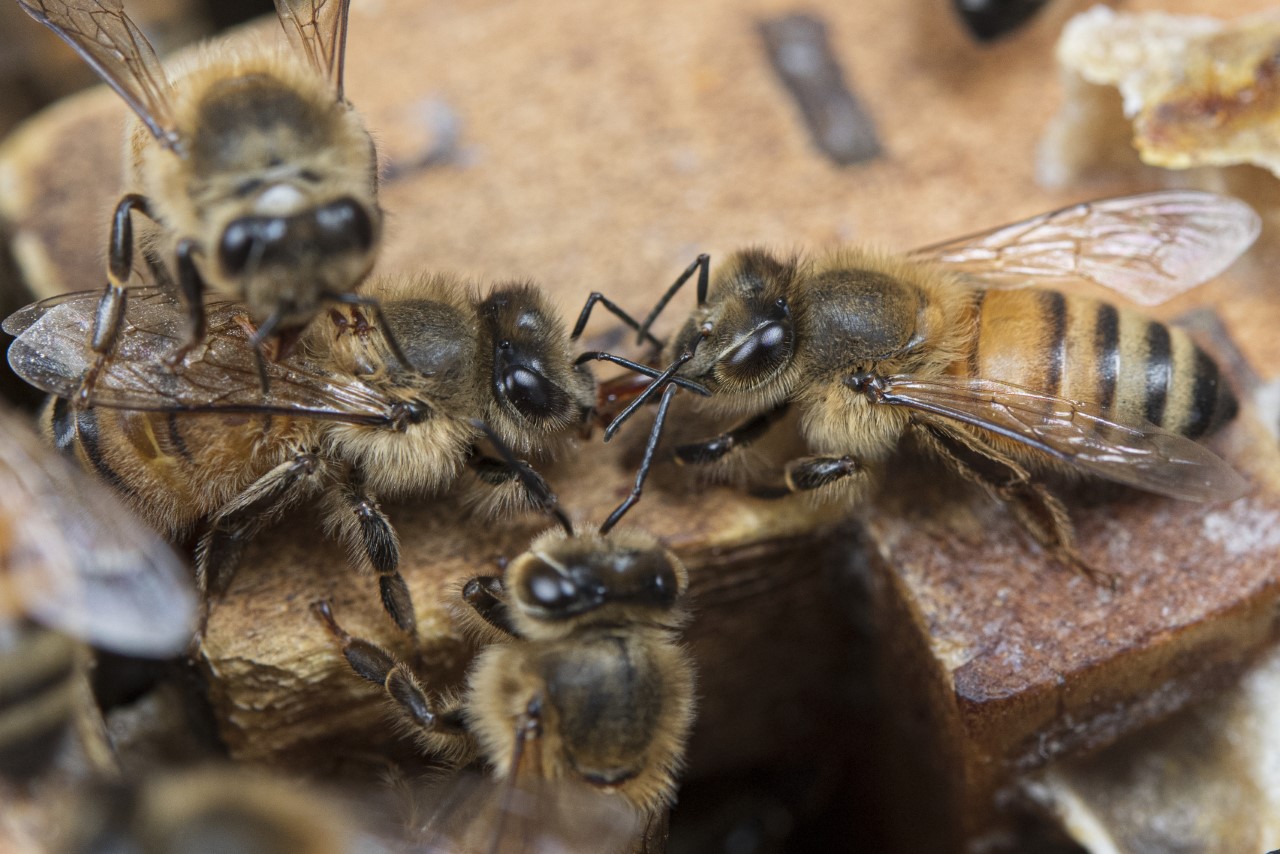Probiotics to help defend crop-pollinating honeybees from common diseases
13 January 2023By Georgina Binns BZool – MConsBiol – MRes Researchers plan to provide bees with immunity-boosting probiotics to increase defence against common infections. Researchers at Macquarie University are developing an economical […]

By Georgina Binns BZool – MConsBiol – MRes
Researchers plan to provide bees with immunity-boosting probiotics to increase defence against common infections.
Researchers at Macquarie University are developing an economical and chemical-free probiotic treatment to help boost resistance of honeybees – in the hopes of increasing resistance to common bacterial and fungal hive diseases that are the main causes of global population declines. Infectious diseases, such as European foulbrood and chalkbrood, cause devastating impacts on crops and honey production from the loss of pollination services.
Probiotics are made from beneficial microorganisms that have health benefits when ingested – these are found to naturally occur in products such as yoghurt and other fermented consumables. Probiotics have been found to maintain digestive heath and boost the immune system in humans when taken as a dietary supplement. Because these ‘good bacteria’ are naturally occurring, they will not be dangerous to bee health, with the research team specifically targeting bacteria essential to honeybees.
Existing bee probiotics only target one disease at a time, but the team aims to develop a general probiotic that will raise the overall immunity of bee colonies. “Multiple diseases can infect hives simultaneously, and it is challenging to predict which disease might spread across hives. Our team will create a broad-spectrum approach to disease resistance instead of looking at just one singular infection,” says Dr. Fleur Ponton, an expert on gut microbial symbionts. Probiotics are chemical-free and cost-effective products for Australian beekeepers and growers that can be easily implemented into their systems.
The Australian Honey Bee Health Survey 2019 reported that commercial beekeepers lost an estimated 19% of hives during the previous year due to diseases, pests and other events. This loss translates to significant economical deficiencies for Australian growers of pollination-dependent crops, such as macadamias, almonds and avocados, with 65% of Australian agricultural production relying on pollination by bees. “With climate change and invasive bee pests becoming more present, we need to find solutions to protect our honeybees here in Australia. We can’t solve everything, but a generic probiotic would be an important boost to Australian honeybees’ health,” says Dr. Théotime Colin.
The research team, led by Dr. Fleur Ponton and including insect and bee experts Associate Professor Ajay Narendra, Dr. Théotime Colin and microbe expert Dr. Sasha Tetu, will look at a variety of ways to deliver the right probiotic mix to hives. “We are aiming to include probiotics into healthy supplemental feeds for bee colonies. Feeding colonies is a common practice already in place in many countries but that is less developed in Australia,” Dr. Ponton says. “Beekeepers in Europe, Africa and North America often feed supplemental food patties containing pollen, vegetable proteins and sugar mixtures to hives. These mixtures do not usually contain probiotics just yet.” Further, this project will assemble a collection of probiotic strains that will be stored in the team’s lab at Macquarie University. In the future, these strains could be tested against new emerging diseases.
Stressors such as pesticides, parasites and diseases affect how well bees pollinate crops because it affects their memory. Bees need to navigate from their hive to the food crop and back, which means they need to remember how to find the hive. How well they learn their way back to the hive contributes to the success of their colony and their pollination services. “We know that gut health affects memory and learning abilities in other animals and even humans,” says insect neurobiologist Dr. Ajay Narendra. “Every day, bees come out of the hive and search for food,” he says. “Once they are loaded up with nectar or pollen, they must find their way home, otherwise they will die.”
Georgina Binns is a Research Officer at the Ponton Lab, School of Natural Sciences, Macquarie University, Wallumattagal Campus, Sydney, Australia
